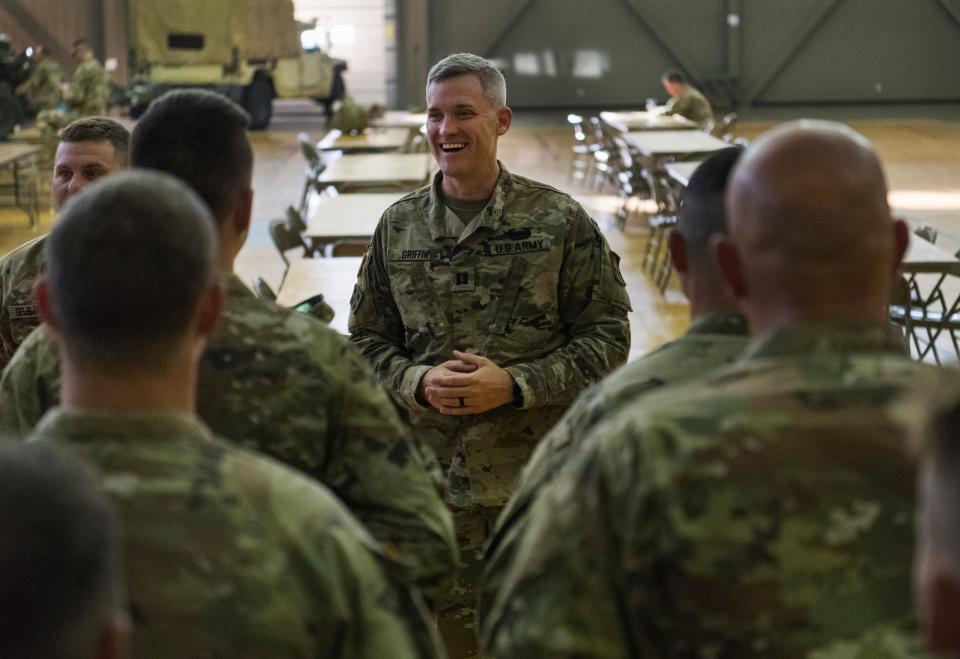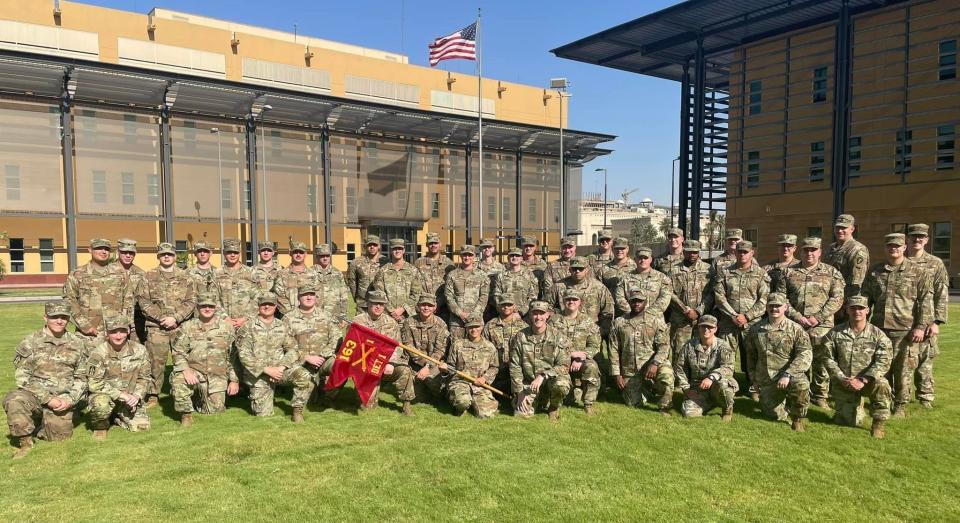Q&A: Iraq deployment coming to an end for Evansville's 163rd. So what comes next?
Ever been apart from a good friend or loved one for a few weeks? How about a few months? A year?
Remember what it felt like to know that the end of the separation was coming soon? That there'd be meals and movies and laughs and catching up, in person, for the first time in ages?
And remember how agonizingly slow those last few days were before the reunion?
That's life right now for the 1st Battalion, 163rd Field Artillery of the Indiana Army National Guard, an Evansville-based unit that draws in some 300 soldiers from around the Hoosier State. They've been gone since August 2022, sent 7,000 miles to Iraq to mind the details of a muted conflict that the American public has generally moved past.
More: Q&A: Checking in on Evansville's 163rd Field Artillery unit, on deployment in Iraq
The soldiers will tell you otherwise. So will their relatives and friends and nieghbors and co-workers. There have been a lot of holes in a lot of lives for the past year. And at some point − achingly soon − they'll be home.
We caught up with Capt. Ernie Griffin of the 163rd, who we also talked to in February about the deployment. When he gets back to the United States and his "other career," Griffin will start his tenure as principal at Plaza Park Middle School. He was previously an assistant principal at Harrison High School.

The conversation has been edited for clarity and length.
Do you have a general window in which you expect to return to the United States?
So the answer is yes. I think I can say early- to mid-August. And I know that people hang on every word, and our families hang on every syllable. But if that's the window we use, we would not be lying and we wouldn't be saying too much.
Would you explain why that needs to be such a guarded piece of information?
Operational security is critical when we are deployed to hostile areas and with so many soldiers deployed all over the world, troop movements and how soldiers travel and how many people travel in groups is sensitive classified information to keep soldiers safe.
What comes next in the journey for the 163rd?
Well, right now, we're basically all over Iraq, and we'll make our way to Fort Bliss, Texas. There, we'll go through a demobilization process − that's like medical and administrative processing and it takes some time. Typically a couple of weeks. From there, we'll have two large groups of people. One group will go to Indianapolis and then a group will go to Evansville because we have soldiers that are deployed from all over the state and each of those sites will have a welcome-home ceremony.

When do your families find out that you'll be back in Indiana?
About 96 hours prior. That's pretty standard.
So are the two weeks when you're at Fort Bliss the longest of the deployment?
Oh my goodness, yes. I think all soldiers and families struggle at a couple of different points on the deployment. Certainly the leaving. Then there's a slog in the middle months, like months five through seven, that is really difficult for families because the light is too far away at the end of the tunnel. Then, there's being close to home, knowing your family members are within an arm's length, a drive away.
And that's before you even get back to trying to fit in to everyday life again.
We have specific reintegration training that we provide to all soldiers. And we even have reintegration that we provide to families because it's a challenge for them, too, right? Some of the same problems that you may have had at home are still there, they've just been on hold for a year.
So with a lot of families, there's a desire to make up a lot of lost time. Reintegration is a critical time for families and making them aware that hey, it may not be all roses. There's gonna be some thorns and it's important to give each other as much grace as possible.
This article originally appeared on Evansville Courier & Press: Q&A: Iraq deployment coming to an end for Evansville's 163rd. So what comes next?

